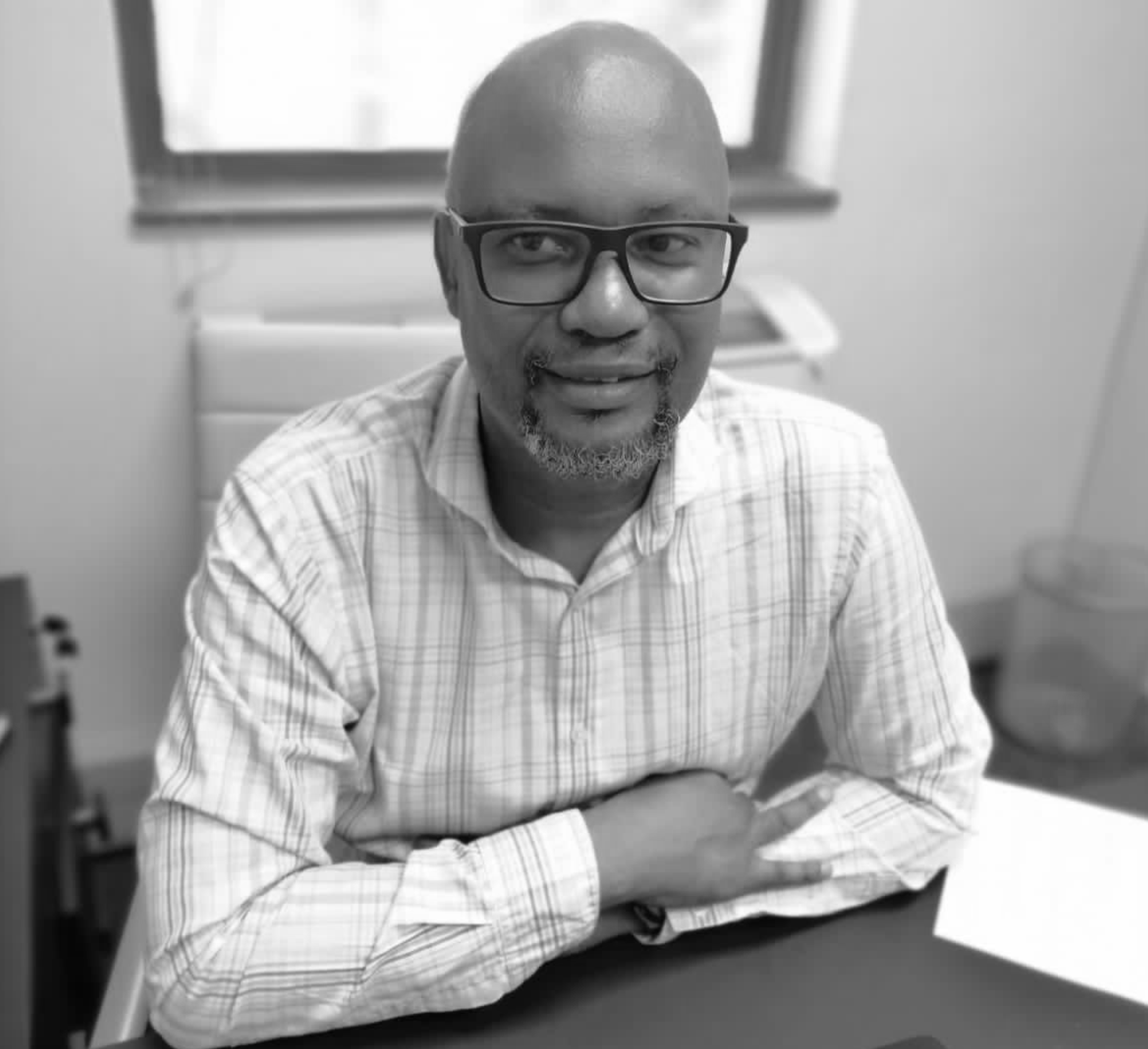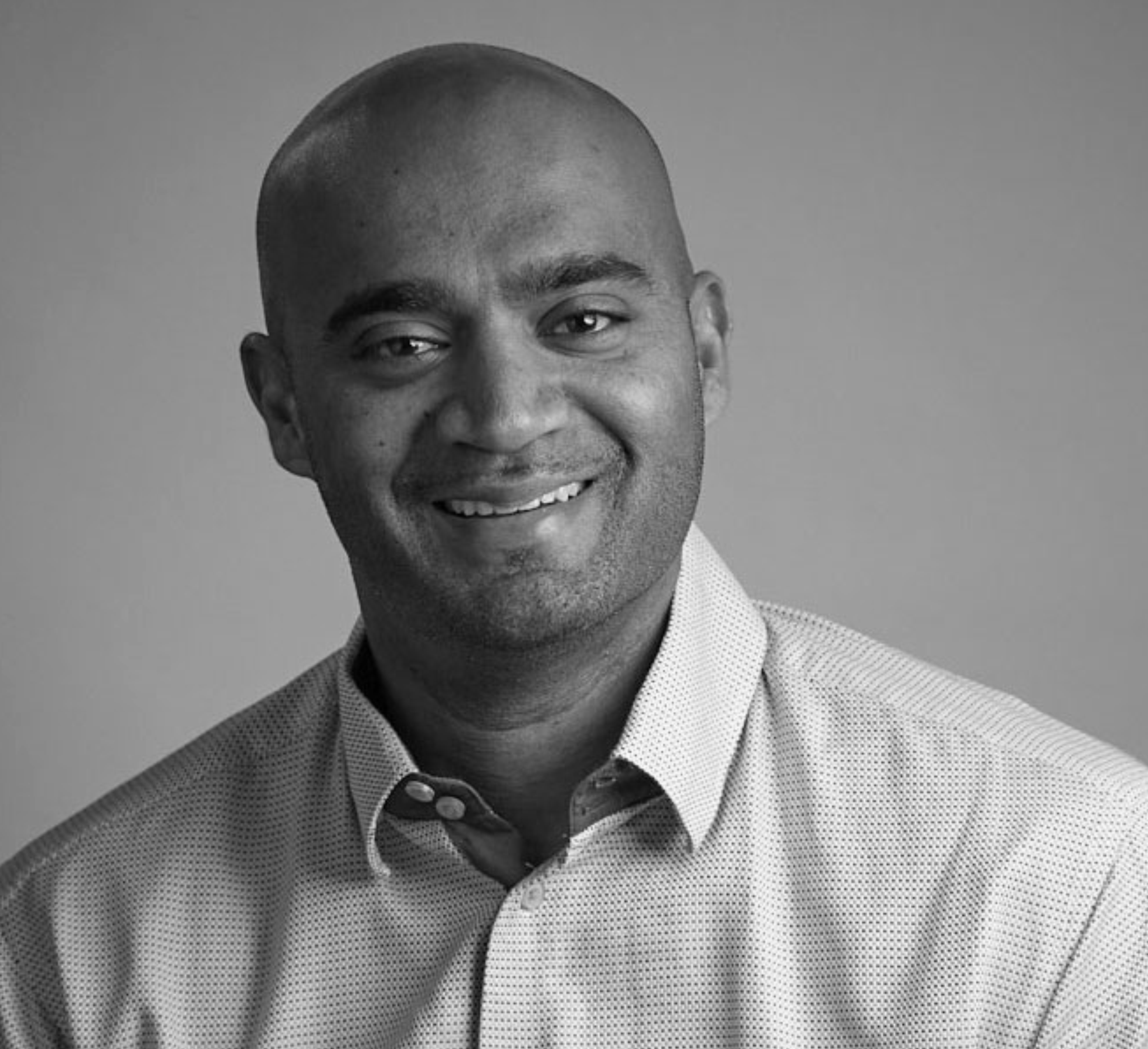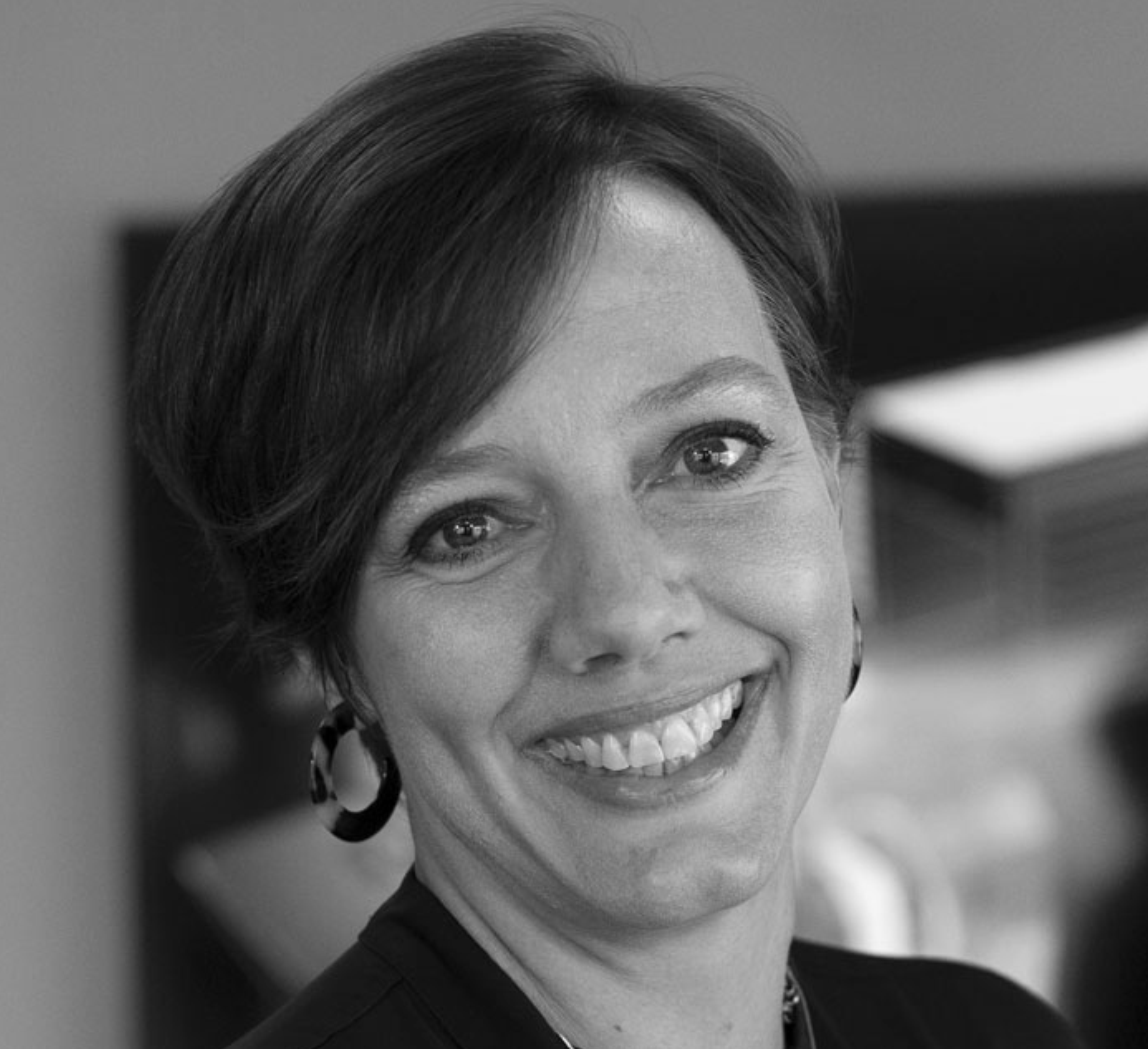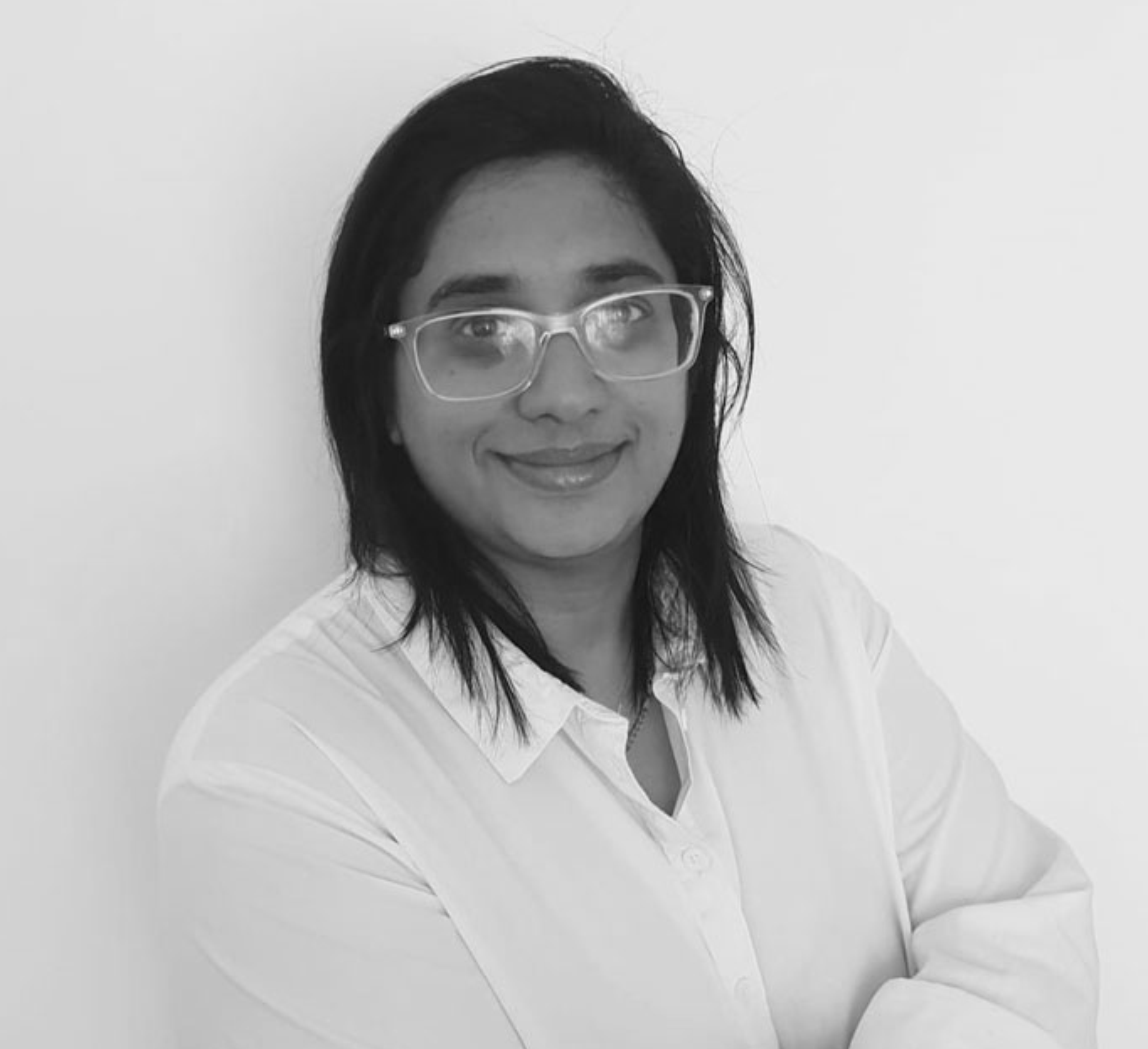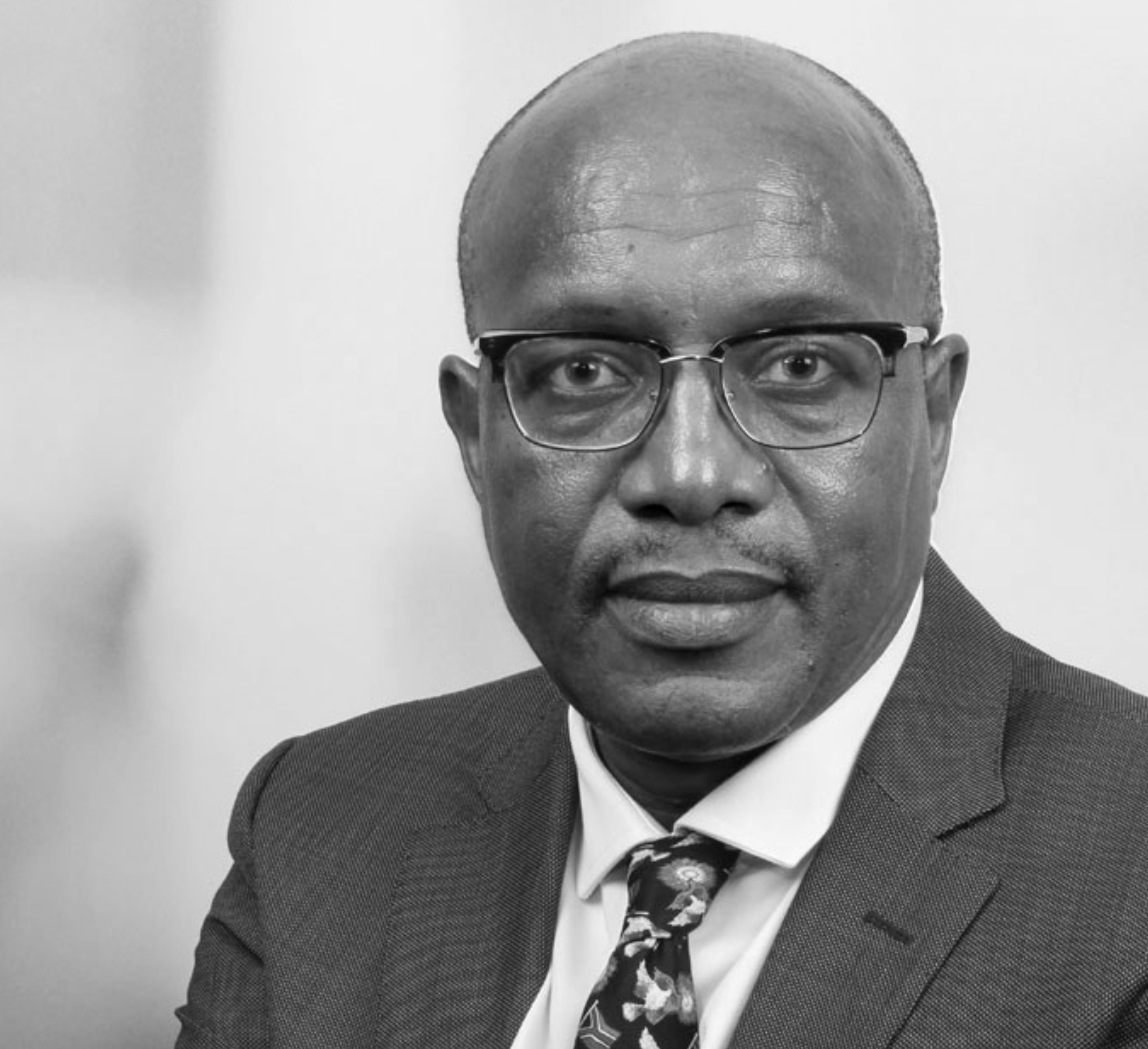115: Zanele Ngwenya
‘I’ve always had a passion for education.’
A specialist in strategy turnaround and sustainable performance, Zanele Ngwenya’s diverse career experience has equipped him for the role as CFO at Unisa Enterprise.

CIARAN RYAN: Today’s podcast is sponsored by Draftworx, which provides automated drafting and working paper financial software to more than 8000 accounting and auditing firms and corporations. CFO Talks is a brand of the South African Institute of Business Accountants. I’m delighted today to welcome Zanele Ngwenya, who is CFO at Unisa Enterprise, which is the business arm of the University of South Africa. Zanele is a CA and he has an MBA through the Gordon Institute of Business Science, and he joined Unisa Enterprise in 2019 as CFO. Over his 20-year career he’s accumulated vast experience in sectors like automotive industries, aviation, entertainment, education, mining, alternative energy, finance and insurance. In most of these engagements he’s been involved in transformation from strategy turnaround to sustainable performance. First of all, welcome Zanele, and where are we talking to you from? Are you based in Gauteng, Pretoria or Johannesburg, where are you?
ZANELE NGWENYA: I’m based in Johannesburg South.
CIARAN RYAN: Okay, are you talking to us from home or are you back in the office?
ZANELE NGWENYA: I’m talking from home currently.
CIARAN RYAN: So Covid still applies at Unisa Enterprise?
ZANELE NGWENYA: It still applies, we’re just on a rotation basis in terms of going to the office, just to avoid a lot of people bunched up in the office.
CIARAN RYAN: For the benefit of our listeners, many of them overseas, just explain Unisa Enterprise and what it does.
ZANELE NGWENYA: Unisa Enterprise is responsible for the third-stream income for Unisa, which is University of South Africa. Maybe just to explain what we mean by third stream income is that the university has three streams of income, there might be a fourth one, but mainly the first one is grants coming from the government. The second one is the student fees coming from the students, and then the third one, which we are responsible for at Unisa Enterprise, is any other income that might come from different streams, whether it’s short learning programmes, which are not the academics that are accredited or maybe just hiring out of our properties at Unisa and any other thing that we might do, selling of books. All that third stream income, we are responsible for that.
CIARAN RYAN: There’s a lot of research going on at Unisa and I think it’s very well known internationally for that. So I had the idea that a part of that income stream was monetising some of that research. Am I wrong in that or is that actually the case?
ZANELE NGWENYA: Yes, that’s true and I’ll talk more about some of the things that we are doing. There are a couple of service offerings that we have at Unisa. The first one is the short learning programmes, which are basically your non-degree courses that we can offer to the public.
Then the other one is research, so we do research through our subsidiary, we’ve got a subsidiary called BMR, Bureau of Market Research, it’s well known, it’s been in operation for more than 60 years. It has done numerous research [projects] over the years in South Africa and overseas. So it’s quite big unknown out there. Then the other ones is there too, we are busy with it now, they haven’t been developed fully and that is the technological and innovation transfer where we use all the Unisa IPs that have come up from research and we create spinoff companies that any entrepreneur can use, using some of the Unisa IP that we have. We also have another arm where we do a lot of contract, research consulting, where we sell the know-how of our professors, our researchers to the public so that they can use it. So we consult with the knowledge there. Also, we do a whole lot in terms of property management on Unisa, especially most of the commercial properties that Unisa holds.
CIARAN RYAN: Now, I imagine when you talk about properties and IPs, you have a lot of patents. I remember reading some years ago, in fact, a lot of the research is proprietary to Unisa, it’s patented and then is made available to the public both in South Africa and abroad, You say some of these are now being put into companies where they can be commercialised, maybe talk about one or two of these innovations that have come out of Unisa Enterprise.
ZANELE NGWENYA: Most of them that we’re working on we haven’t really publicised, but we are working with business organisations like the Black Business Council so that we can actually commercialise some of them through the Black Business Council. We’ve got five IPs now that we are working with that, and those will be publicised soon.
CIARAN RYAN: But you also do research I think in areas like agriculture, improving agricultural performance…
ZANELE NGWENYA: Yes, we specialise more in agriculture, economic sciences and education, in terms of research towards those sectors.
CIARAN RYAN: Is this becoming quite a big thing in universities around the world, where they are commercialising these properties and this IP that’s been developed in house as a way of funding, which is the core business, which is education.
ZANELE NGWENYA: Yes, it is, I think the trend is that people have seen that universities are struggling with funding. So the best way is to create these enterprises that could come up with third stream income to fund most of these universities. So it’s a trend that is going out there and it’s also doing well around South Africa.
‘When I got to Wits it was still very tough at that time for a black person to be an actuary.’
CIARAN RYAN: Let’s talk about yourself now for a minute. Tell us about your career journey. Where were you born, where did you grow up, go to school and how you ended up here. You’ve got a fantastically diverse CV, all these different sectors that you worked in from automotive to aviation, entertainment. So tell us a little bit about that and your background.
ZANELE NGWENYA: My background, I basically come from Soweto in Johannesburg. Then I left Soweto during the riots, just before in 1992, to go to boarding school in Pretoria. When I finished my schooling, I went to Wits University and with regard to my career prospects, I was looking to be an actuary. But when I got to Wits it was still very tough at that time for a black person to be an actuary. I remember that I was the only black person in the class. From there I changed my career into accounting and changed universities to go to the University of Natal. I started with economics to be an economist. After finishing my economics and accounting degree at the University of Natal, I was working at JCI in an accounting department. I saw, he was very well known, one of the black CAs who was there working at JCI Mining. So there was a young black CA doing their [unclear] work at JCI and I thought no, maybe I should change my career to be a CA. So I went back to the University of Natal, did my honours in accounting, and then left JCI to serve articles in a company called Fisher Hoffman Sithole in those days but I think now it has changed in South Africa to become PKF, and then changed to Grant Thornton, I’m not sure what’s happening with that company now…
CIARAN RYAN: Yes, they’ve moved around so much, I think it started as Fisher Hoffman Stride, and then Fisher Hoffman Sithole…
ZANELE NGWENYA: Yes, so that’s where I was and then when the Sithole brothers left Fisher Hoffman, I left with the Sithole brothers to form Sithole Incorporated and I became a partner there, for about four years, doing various industries, some on behalf of the Auditor General, as an auditor. Then I had developed one business with one of my clients, and when my clients had that Barloworld deal they took me over and said start your career in the private sector. So then I went to Barloworld, where I was in charge of the insurance cell captives for Barloworld, be it for Avis, be it for logistics, and also for automotive at that time. So I was in charge of all the insurance cell captives. Then after that is when I finished my MBA, and then I was recruited by the government to go to South African Express Airways as a CFO there. I did pretty well as a CFO there, there were a couple of challenges that they had. They had a lot of challenges of cash flows, so we actually got a lot of cash out of the balance sheet by optimising the balance sheet because they hit a whole lot of problems there…
CIARAN RYAN: Just pause there for a minute and just talk about that and how was that done because the airlines, as we all know today, are struggling. What did it require to release some of this cash? Did you have to convert owned planes to leases or leaseback back agreements? How did that work?
ZANELE NGWENYA: Most of the problems there were, I can’t say it was problems, but it was cash sitting in the balance sheet, but people couldn’t really get that cash because they didn’t know what the steps were to get that cash. I’ll give you an example, SA Express first bought their aircraft through the Kenyan islands and they needed to wind off some of the aircraft structures. So what happened was that those were not winded down, and when I got there, I started the process of winding them down because they had a guarantee from Standard Bank, which was money sitting in Standard Bank, in the balance sheet and we couldn’t get that money because of the fact that it was guaranteeing those aircraft structures until you run down those structures. They also had a couple of problems where they had income tax refunds that they couldn’t get from the taxman because of the fact that their tax status was not updated. So we updated that and managed to recover a couple of millions from the taxman at that time. Then there were also a couple of things that we did from an operations point of view because one of the key things that took out money from SA Express was basically on procurement of parts, especially from overseas because the one key thing was to align the operations and also the procurement, understanding the time lags, understanding when it is possible to get certain material. So we started an initiative where we even got things like a material planner, it was more often an operational management issue to make sure that we kept enough cash within the business and import materials in time for the aircraft to be flying and not on the ground most of the time.
‘I left there when there was some political interference.’
CIARAN RYAN: I interrupted you, you were telling us about your career journey. So just carry on from that point.
ZANELE NGWENYA: After SA Express, I left there when there was some political interference, and then I went to Sishen Iron Ore Community Development Trust, where I was the chief financial officer and the investment office because they had a whole lot of investments with external parties. One they owned, SA Airlink, which was an airline company. They had shares Basil Read, which was a construction company, they also had a couple of other businesses in the Kathu area, where Kumba Iron Ore was because Sishen Iron Ore owned shares from Kumba. Also, at that time we initiated an alternative energy, which was a concentrated solar independent power producer. We developed it during that time when I was at Sishen Community Development Trust. Then from there I did a whole lot of interim jobs, where I went to SAMRO, which is the South African Music Rights Organisation,
for a couple of months, and then I went to Fundi, which was a financial services company, for a year. I’ve always had a passion for education, so when I got the offer to go to Unisa I was very much interested in it, and because it’s always been my passion.
CIARAN RYAN: Of all these different positions that you’ve had over the years, what is the biggest challenge that you’ve faced, would you say, as a senior finance executive?
ZANELE NGWENYA: There have been different and unique challenges in all the companies. The one biggest challenge is a challenge that I have now currently at Unisa Enterprise because Unisa Enterprise is very new, so you’re trying to build a company from the ground. So it’s been a little bit challenging because of the fact that you need to get the strategy right and get all the funding that you need from Unisa to start up this enterprise.
CIARAN RYAN: Right, so the kind of challenges that you’d face in any startup business is cash…
ZANELE NGWENYA: It’s always cash, yes.
CIARAN RYAN: You’ve probably got properties that you can include on the balance sheet, intellectual properties and so on, but then it’s converting that into a revenue stream, which I am sure can be problematic.
ZANELE NGWENYA: Yes, because commercialising IP usually takes time. It can take five to seven years to commercialise an IP. So that’s one of the difficult parts, so you always have to come up with other revenue streams that will keep the organisation sustainable during that time. One of the key sustainable revenue streams is the short learning programmes, which is a very competitive industry, where you have all these other universities also engaging in short learning programmes. But we are looking to go deep into Africa because we’ve had a lot of history in Africa and, there’s still a lot of home for us to offer those in Africa and be sustainable.
CIARAN RYAN: That’s right, maybe you’ve got some stats on this, maybe you don’t, but I think a very high percentage of students at Unisa are from other countries in Africa. Do you know what that percentage is?
ZANELE NGWENYA: It is 17% now, it has reduced over the years but we’re looking to capture that back into Unisa.
CIARAN RYAN: So you’ve got alumni throughout the continent that you can basically draw on, that’s your network, and I guess word of mouth, when somebody has been to a university and they’ve had a good experience there, they’ll talk about it. Is that what you’re relying on?
ZANELE NGWENYA: Yes, definitely, that’s what we’re relying on. I think that’s also the focus of the new vice principal who has joined because she always talks about us being an African university, rather than a South African university.
CIARAN RYAN: Fascinating and I suppose Unisa as well, more than other universities in South Africa, they do have this network that they’ve built up over a long period of time, it’s a huge and long track record. So that does count for something in implementing this plan that you’re talking about.
ZANELE NGWENYA: Yes, definitely.
CIARAN RYAN: Just changing tack here a little bit, just walk us through a typical day as CFO, what are the kinds of things? Where do you spend your most of your time, is it with managing a team, is it problem solving, this kind of thing, how are we going to find cash for this project? Where do you spend most of your time?
ZANELE NGWENYA: I think for me, it’s basically spending my time between four areas. One is on the strategic implementation, assisting on the strategic implementation, helping other business units to find cash to invest in, to enable us to invest in things that we know that if we invest in them will be sustainable in the future. The other one is basically looking at the current policies, current financial analysis and seeing where you can cut down on cost and where there’s a potential of revenue, and try and see if you can engage management to chase that. The other key area, one is to talk to your stakeholders, whether it’s your internal stakeholders, whether it’s your external stakeholders. But I’ll spend most of my time just engaging stakeholders and trying to find where opportunities are.
CIARAN RYAN: Here’s a question for you, you’ve been in many different roles as a senior finance executive. Just looking back over a decade or two in this business, how has that role changed, how’s the role of the CFO changed? Has it become less compliance-related issues, more strategy, you’re right-hand man to the CEO. Just explain from your viewpoint, how you’ve seen this role evolving.
ZANELE NGWENYA: So with my role, how it has evolved is that I am more involved in operations and strategy implementation, than just looking at the finance side. I think also having that MBA helped in a way because you can actually direct strategic initiatives such that they translate into sustainability and financial wellness for the company. So most of the time the role has changed from basically being a number cruncher to more of a strategic implementer, and also looking at the efficiency of operations within an organisation.
CIARAN RYAN: You may be aware that there’s some research that’s coming out, several universities around the world have just looked at this role of the CFO. Some people like to call it the chief value officer. But there was a study done out of Queen’s University in Canada, it’s called from CA to CFO, and they basically identify all these different competencies that you’re not really taught in accounting schools, things like team leadership, things like strategy, things like human resources and so on. The South African Institute of Business Accountants launched a designation called CFO South Africa or certified financial officer. It’s basically in recognition of people who’ve accumulated these disciplines through experience. So this is my question to you, are there some things that you’re only going to learn through experience that you’re not really going to come across in an academic curriculum?
ZANELE NGWENYA: Definitely, I think one for me that is quite important is understanding how to manage business politics. It’s very much crucial for a CFO to understand, and also being flexible, to the business environment because most of the time I’ve seen most number crunchers are not always flexible to the rules and regulations that are out there. But it’s being flexible so that you create value within the company and find ways where your policies might impede you to do that.
‘It was beyond my capabilities, so the best way I could manage it was to resign.’
CIARAN RYAN: Interesting. Office politics or it’s not really office politics, it’s the power structure within organisation. For somebody coming from an accounting background, it can be a street fight at times, I’m sure. You mentioned political interference when you were at SA Express, that must be, as an accountant, given the ethical codes that you have to uphold, that can be very, very difficult, I would imagine?
ZANELE NGWENYA: That is very difficult. Hence, when that started coming up where I was, I think for me, it was the first time I experienced it. It was beyond my capabilities, so the best way I could manage it was to resign as a CFO then. But over the years, I’ve learned how to manage these politics that come from external factors or either external or internal factors over the years. So you learn how to manage them properly.
CIARAN RYAN: Was that interference in terms of procurement, choose this rather than somebody else?
ZANELE NGWENYA: Yes, it was regarding procurement.
CIARAN RYAN: A couple of final questions here, what do you do for your downtime, how do you relax?
ZANELE NGWENYA: Well, I do a couple of things, sometimes I’ll read a book, I love doing puzzles with my kids, so we’ll go and buy a 5,000-piece puzzle and try to tackle it and see if we can manage that. I am a sports fan and I also coach a basketball team. I actually coach the professional team now for ladies, which is Egoli Magic…
CIARAN RYAN: Is that based in Johannesburg?
ZANELE NGWENYA: It’s in Johannesburg, yes. It’s the Basketball National League.
CIARAN RYAN: Are they doing well?
ZANELE NGWENYA: Yes, we’re in the finals, which is on March 21, it will be televised on SuperSport.
CIARAN RYAN: And you coach them?
ZANELE NGWENYA: Yes, I coach them.
CIARAN RYAN: Are you very tall?
ZANELE NGWENYA: No, I’m not that tall but I used to be very quick during my years of playing basketball.
CIARAN RYAN: Just on that point, the NBA, America’s basketball association does have a presence in South Africa. I came across that recently in the Bafokeng area, in Phokeng. There are apparently 25,000 kids who are playing basketball in that area. I never noticed this before, but it does seem to be a very fast-growing sport in this country.
ZANELE NGWENYA: It is a very fast-growing sport, I’ve even seen in the Kathu area, when I was at Sishen, there’s a guy who started a league there in the Kathu area. He started with three schools, now he’s got 12 schools in the league, and most of them are using the structure that the NBA did with the Bafokeng area. I think it’s very good for contributing to socioeconomic issues of South Africa because it gets the kids out of the ills that are out there.
CIARAN RYAN: I think some of these graduates from Bafokeng have actually been sent to universities in the United States to become professionals. It’s becoming quite a thing in this country.
ZANELE NGWENYA: It is, especially in Africa. The NBA formed I think it’s an NBA Academy in Senegal. There are a couple of kids that have gone to that NBA Academy from South Africa. I think the NBA wanted to start a league in Africa, just to get the talent in Africa because most of the players who are playing in the US now have got African origins. So they see a lot of growth in Africa.
CIARAN RYAN: Fascinating. Okay, final question, are there any books that you can recommend for people, they do not have to be technical accounting books?
ZANELE NGWENYA: I am reading quite spiritual books now. I’ve come across three very nice spiritual books by the late Dr Myles Munroe. The one is called Becoming a Leader, the other one is
The Spirit of Leadership: Cultivating the Attributes That Influence Human Action, and the third one is the Power and Purpose of Vision. I found them very fascinating in terms of helping me in my leadership role that I’m in now.
CIARAN RYAN: What’s your main takeaway from reading this?
ZANELE NGWENYA: I think the main takeaway from that was basically to say that a leader has to have certain attitudes, one of the key attitudes will be there has to be a purpose and a passion in what you are doing, and there has to be goal settings in everything that you do as a leader.
CIARAN RYAN: And you find it’s improved your skillset as a leader?
ZANELE NGWENYA: It definitely has.
CIARAN RYAN: Interesting. You mentioned kids, I take it you’re a family man, how many kids do you have?
ZANELE NGWENYA: I have got three kids, one boy, who is an adult of 25, and two girls, 17 and ten years old.
CIARAN RYAN: Okay, so a couple still at home and I guess your eldest has moved out?
ZANELE NGWENYA: Yes, the eldest has moved out.
CIARAN RYAN: Okay, fantastic. Wow, what a great discussion I thoroughly enjoyed that, Zanele, thank you so much for coming on, sharing your insights and also your diverse background in all these different industries. We were able to get inside some of the challenges that a CFO faces. Please, let’s stay in touch we’d love to get you back on again. I’m really keen to see Unisa Enterprise succeed and develop some of these intellectual properties that you’ve got, and I really want to follow that journey with you.
ZANELE NGWENYA: Definitely, I think, Unisa has got a long history and I’m sure there are IPs coming up from the time it was developed that we also don’t know at Unisa. So it’s going to be a very interesting journey going forward.
CIARAN RYAN: Fantastic. That was Zanele Ngwenya, Chief Financial Officer at Unisa Enterprise.

